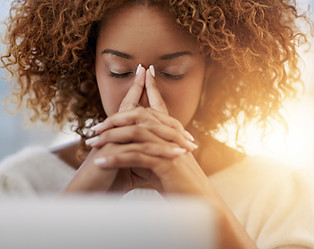What is Counselling?
There are many different forms of therapy available today for people who want to make some kind of change in their life, or understand more about their thoughts and feelings and how these affect their choices.
Counselling is a talking therapy which means that the person seeking counselling (usually referred to as the client) will be encouraged by the counsellor to discuss their problems or difficulties. The counsellor will listen and help them to understand their thoughts, feelings and emotions more clearly without telling them what to do. They may however assist the client in finding ways to manage, cope and come to terms with their issues.


How Can I Find the Right Counsellor for Me?
The ways in which counsellors work will vary depending on the kind of counselling they've been trained to provide, their approach and who they are as a person.
Finding the right counsellor for you whether they are qualified or in training is a really important decision. During the work you might want to tell them things about yourself are difficult to say and feel, so being able to trust your counsellor will be crucial to feeling safe. For this reason it can be useful to do a bit of 'shopping around'.
Having a taster session before you choose a counsellor can give you an opportunity to ask questions and get a feel for them and the way they work. There are many reputable online counselling directories and referral services that can help you find a counsellor near you and answer questions you might have about counselling.
For more support...
British Association for Counselling and Psychotherapy (BACP)
The First Meeting
If you're having counselling for the first time or seeing a new counsellor you may be feeling worried about it. If you have an idea of what you might be asked and what to ask, you'll hopefully feel more prepared.
Often in the first session a counsellor will want to find out a bit about what has brought you to counselling. They may ask some questions about your current life, work, home and supportive networks, as well as any diagnosed illnesses and physical or mental health issues you may have.
Finding out what you hope to achieve from counselling will also be something a counsellor will probably want to learn from you.


The Agreement
Once you agree to work with your counsellor you can arrange details such as:
-
The day, time and cost of your sessions.
-
The length of the therapy.
-
Methods and boundaries around contacting each other.
-
Holidays, notice and fees for cancellation.
This is an opportunity for you to ask questions about the counselling arrangements and the therapy process.
Your counsellor should also talk to you about confidentiality and what happens to your data.
Both trainee and qualified counsellors should have regular supervision with a trained professional during which time they may discuss your issues with their supervisor in order to best help you and for self-care purposes.
Before you begin working together you may be asked to sign an agreement outlining these details.
Complaints
Clients can access support from BACP (British Association for Counselling and Psychotherapy) if they have a complaint relating to poor or unethical practice by any BACP member by visiting:
